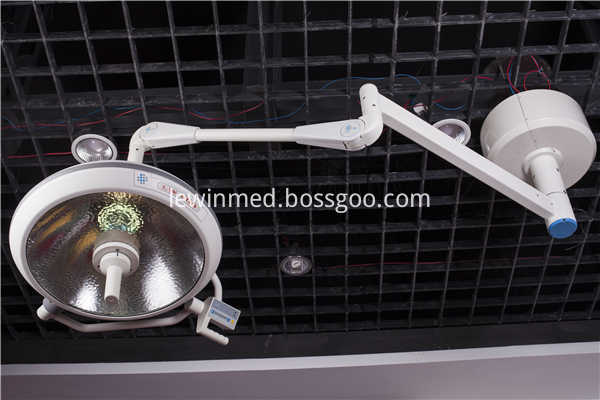Rams are a special group in the flock. Although the number of rams is small, they have a high value of seed use and have a great impact on future generations. Therefore, a high degree of attention must be paid to the rearing and management of the rams, and careful care should be taken to ensure that they are kept in good condition throughout the year. They are physically strong, energetic, have a strong sexual desire, good semen quality, and strong breeding ability. . (I) Feeding points When feeding, the nutritional needs of the rams should be combined with the diet. The diet is rich in protein, vitamins and inorganic salts. The feed to be given should be diversified, have full nutritional value, be digestible, and have good palatability. Try to ensure that the ram can feed a sufficient amount of rich and varied feed every day. The main feed is high-quality mixed legumes of legumes and grasses, and it must be supplied throughout the year. In summer, half of the barley green grass and green grass feed are supplemented, and an appropriate amount of juicy feed is supplied in winter. The nutritional deficiency of the diet is supplemented with mixed concentrates. The rams must increase the supply of mixed concentrates during the breeding season and the rams used for artificial insemination. Protein feeds, especially animal protein feeds, can promote the production of rams sperm. Normally, appropriate amounts of raw eggs (1 or 2) or milk, skim milk, etc., should be fed according to the amount of mating. For rams with poor semen quality, feeds such as bean cakes, alfalfa hay, and peas are fed. Improvements can be obtained in 20 days. Proper amounts of oats, barley, sorghum, bran, etc. can also increase sperm motility and prolong sperm survival time. Grass, carrots, squash, germinating feed, etc. are rich in vitamins, which also promotes the production of sperm. 1. Non-breeding male goats In addition to grazing during the non-breeding period, they can feed 1 to 1.5 kg hay, 2 to 3 kg succulent feed and 0.5 kg concentrate per head per day. 1.5 to 2 months before mating should be fed according to the nutritional requirements of the breeding period. 2. During the mating period, male goats in the breeding period can feed 1 to 1.5 kg of alfalfa hay and 1 to 1.5 kg of mixed concentrate per day per head (also can feed 1% to 1.5% of body weight), 0.5 ~1kg carrot, plus 2 eggs. All fine and coarse feeds are fed 3 times in the morning, middle and evening. 20 days before mating, sperm collection training and semen quality testing are required. The ram with low sperm density is fed with animal protein feed and carrots to enhance exercise and improve semen quality. At the end of the breeding period, the mixed concentrates will not be decremented for the time being, the grazing time will be increased first, and the mixed concentrates will be reduced after half a month, and the mixture will be raised during the non-maturing period. (B) Management Points 1. Kinds of male goats should be spacious and sturdy, clean and dry, and regularly disinfected, as far as possible away from the ram house. 2. When breeding male goats, they should be kept in a single lap to prevent them from being consumed or injured. During the grazing period, the mother and mother should be separated, and the male and female mixed groups should not be grazing, resulting in early allocation and indiscriminate allocation. It is also beneficial for male goats to maintain a strong breeding ability when they are open or bred. 3. The number of breeding times or breeding times for male goats should generally be 1 or 2 times a day, and should be used for 2 to 3 days. Resting for 1 day is appropriate. Individual rams with particularly strong ability to bred or bred daily should not exceed 3 times. 4. Regularly do a good job of immunization, deworming and health care of male goats to ensure the health of rams. 5. Feeding goats for 1.5 to 2 hours a day. Provide enough clean drinking water. 6. Brush male goats once a day to facilitate cleaning and promote blood circulation. Check for ectoparasitosis and skin diseases. Fix hoofs regularly to prevent hooves. 7. In summer, the climate is hot. Special attention must be paid to the cooling of the male goats to cool off the sun. To create cool conditions for them, feed green and green feeds and give them more water.
Single Dome Halogen Operating Lamp with excellent color temperature control.By using color temperature compensation technology, the color reversion is uprised, and it is more suitable for the illumination of the complex surgery such as encephalon surgery and thorax surgery.Single Dome Halogen Operating Lamp are convenient to use. Reflector system designed in CAD; color temperature close to that of sunlight; making the tissue surface visible under natural color; depth of tubular light beams up to over 1200mm; uniform illumination effectively eliminating shadows under any circumstance.
Single Dome Halogen Operating Lamp Single Dome Halogen Operating Lamp,Single Dome Ceiling Operating Light,Single Dome Ceiling Ot Light,Single Dome Surgical Room Lamp Shandong Lewin Medical Equipment Co., Ltd. , https://www.lewinmed.com
